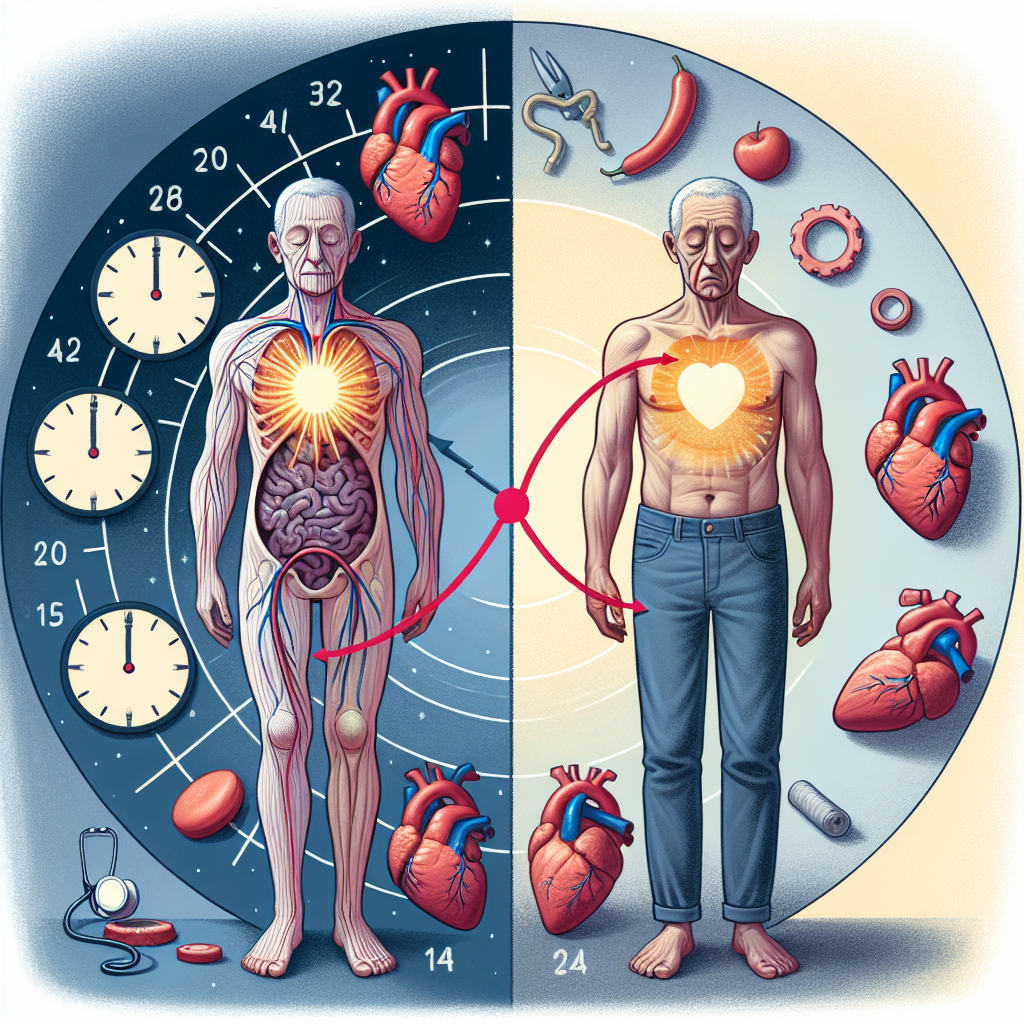Sleep is a fundamental physiological process that affects our overall health in profound ways. It’s during these critical hours of rest that our bodies undergo repair and rejuvenation. However, the relationship between sleep and heart arrhythmias is one that is often overlooked, despite its significance. Heart arrhythmias, or irregular heartbeats, can be influenced by sleep quality and duration, and understanding this relationship is vital for both prevention and management of cardiovascular conditions.
The Intricate Link between Sleep and Heart Health
Sleep disorders such as insomnia or sleep apnea have been recognized as risk factors for heart arrhythmias. Disrupted sleep can lead to alterations in autonomic nervous system function, which controls heart rate and rhythm. Poor sleep may also trigger inflammation and changes in blood pressure, both of which can adversely affect heart rhythm. For comprehensive insights into how these factors interplay to affect cardiovascular health, visit Avix Health on cardiovascular health.
Atrial fibrillation, the most common type of serious arrhythmia, has been particularly associated with obstructive sleep apnea. This sleep disorder is characterized by repeated breathing interruptions during sleep, which can lead to sudden drops in blood oxygen levels. These episodes can trigger a cascade of events, including increased stress on the heart, which may result in arrhythmias.
The Impact of Circadian Rhythms on Cardiac Function
Our circadian rhythms, or the body’s internal clock, also play a pivotal role in heart health. Disruptions to these rhythms, which can occur due to shift work, travel across time zones, or irregular sleep patterns, have been linked with a higher incidence of arrhythmias. The circadian clock influences the cardiovascular system by regulating blood pressure, heart rate, and the release of certain hormones, all of which can impact heart rhythm.
Strategies for Promoting Heart-Healthy Sleep
Establishing a Sleep-Conducive Environment
To improve sleep quality and protect heart health, it’s essential to focus on sleep hygiene. This includes maintaining a cool, dark, and quiet bedroom environment, sticking to a consistent sleep schedule, and avoiding stimulants like caffeine and electronics before bedtime. These practices can lead to deeper, more restorative sleep, thereby reducing the risk of arrhythmias.
Managing Sleep Disorders
Effective management of sleep disorders is crucial for heart rhythm stability. For those with sleep apnea, continuous positive airway pressure (CPAP) therapy is often the first line of treatment. CPAP machines keep airways open during sleep, which can mitigate the risk of arrhythmias. It’s also important to address other sleep disorders, such as restless leg syndrome or insomnia, which may indirectly impact heart health.
Lifestyle Modifications
Lifestyle factors such as diet, exercise, and stress management are also integral to both sleep and heart health. Regular physical activity can improve sleep quality and has been shown to reduce the risk of arrhythmias. A diet rich in omega-3 fatty acids, fruits, vegetables, and whole grains can support both cardiovascular and sleep health. Stress-reduction techniques like meditation or yoga can improve sleep quality and may also lower the likelihood of arrhythmias.
Understanding the Role of Genetics and Cardiac Arrhythmias
While lifestyle and environmental factors are important, genetics also play a role in the development of heart arrhythmias. Identifying genetic predispositions can be beneficial for early detection and prevention strategies. For more information on this topic, refer to Assessing the Link Between Genetics and Cardiac Arrhythmias.
The Effects of Chronic Stress on the Cardiovascular System
Chronic stress is another significant factor that can influence both sleep and heart rhythm. Stress can lead to heightened sympathetic nervous system activity, which can disturb sleep and increase the risk of arrhythmias. Understanding how to manage stress is essential for maintaining both a healthy heart and sleep pattern. To explore this further, read The Effects of Chronic Stress on Cardiovascular System.
Advances in Technology and Heart Health Monitoring
Technological advancements have made it easier to monitor and manage heart health. Wearable devices can track sleep patterns and detect potential arrhythmias, providing valuable data for both patients and healthcare providers. Additionally, mobile health applications can offer personalized recommendations for improving sleep and reducing the risk of heart rhythm disturbances. For insights into the latest technology in cardiovascular prevention, visit Exploring the Role of Mobile Health in Cardiovascular Prevention.
External Resources for Further Reading
For those interested in delving deeper into the connection between sleep and heart arrhythmias, the following resources provide additional valuable information:
- The American Heart Association’s detailed guide on sleep apnea and heart disease.
- A scholarly article on circadian influences on myocardial infarction.
- An in-depth review of lifestyle interventions to prevent atrial fibrillation.
- The Sleep Foundation’s comprehensive overview of how sleep affects your heart.
- A research study on the impact of CPAP therapy on cardiac arrhythmias.
In conclusion, the interplay between sleep and heart arrhythmias is complex and multifaceted. By understanding and addressing the factors that influence this relationship, individuals can take proactive steps to safeguard their heart health. Remember, quality sleep is not just a pillar of good health—it’s also a protective factor for your heart.



